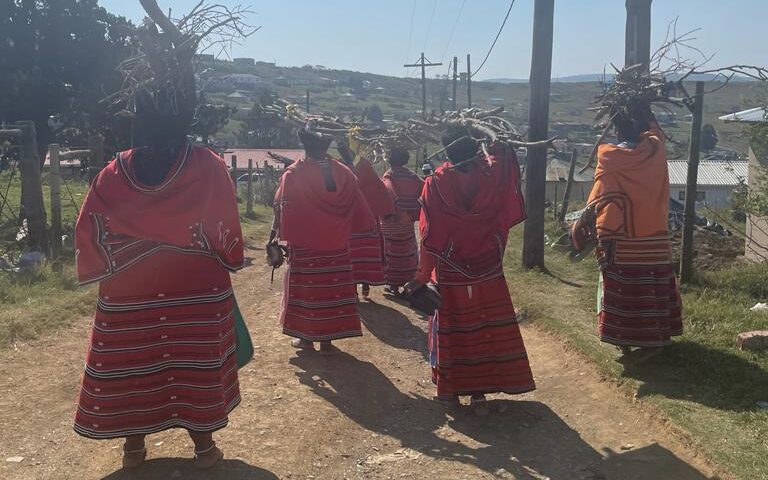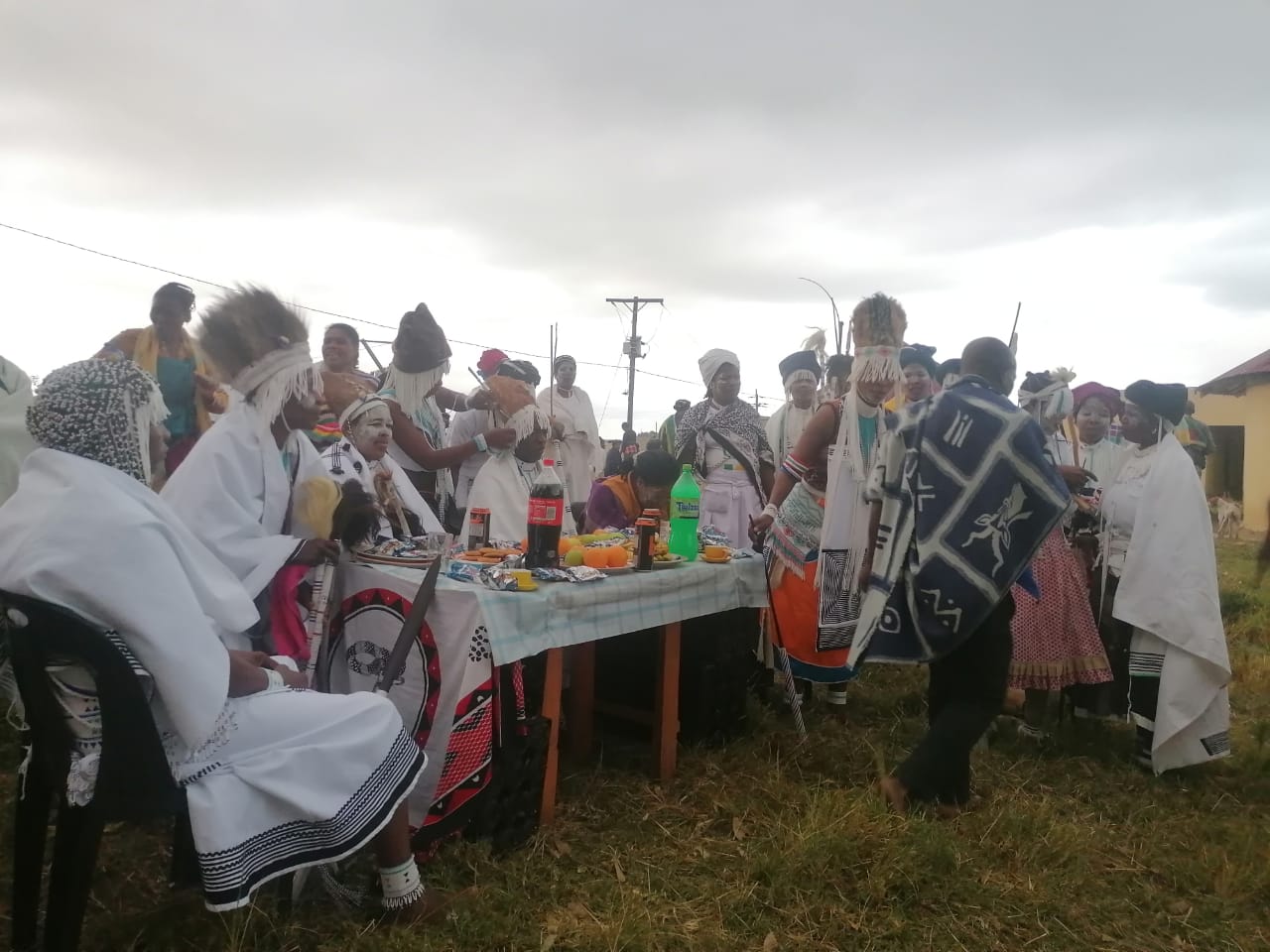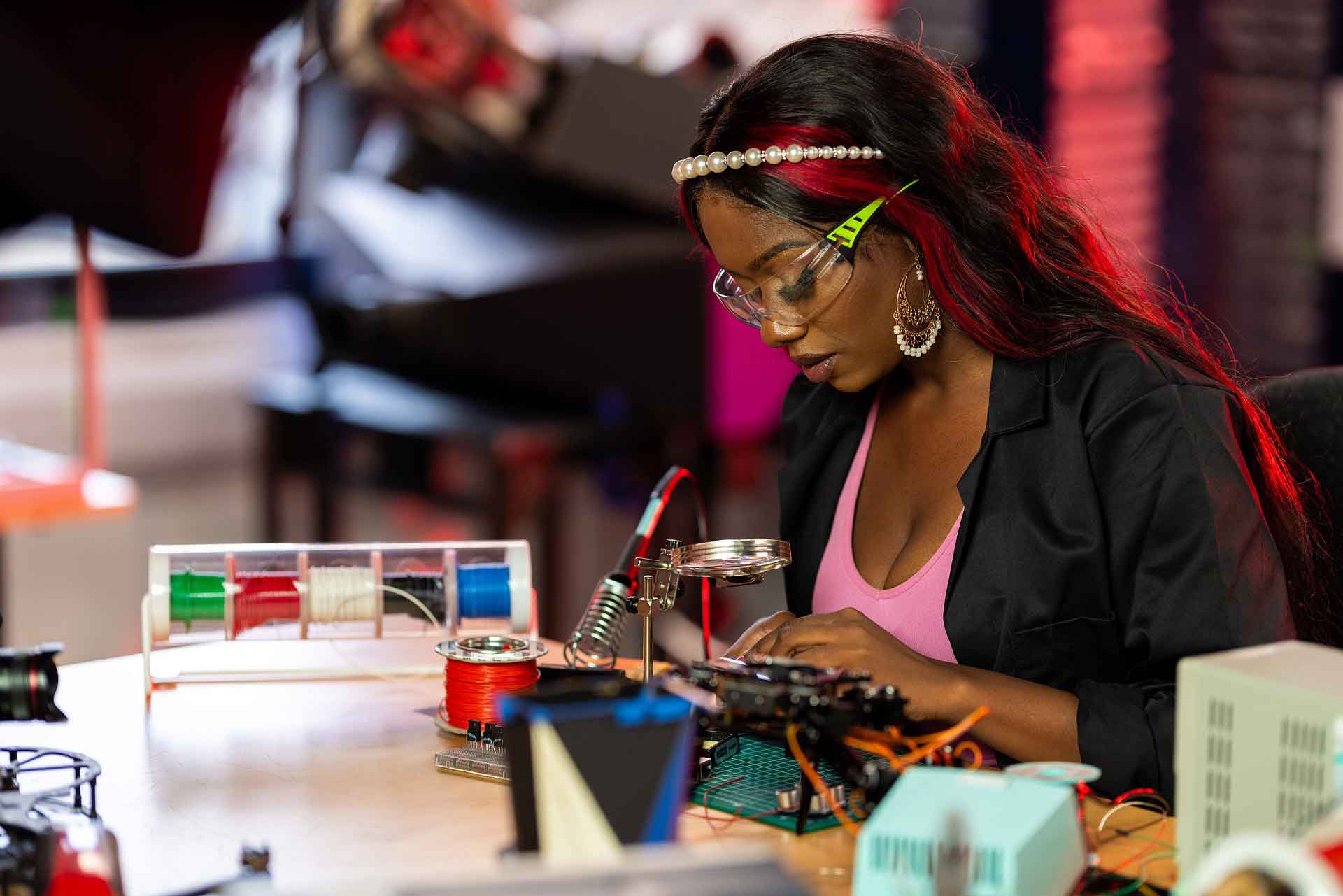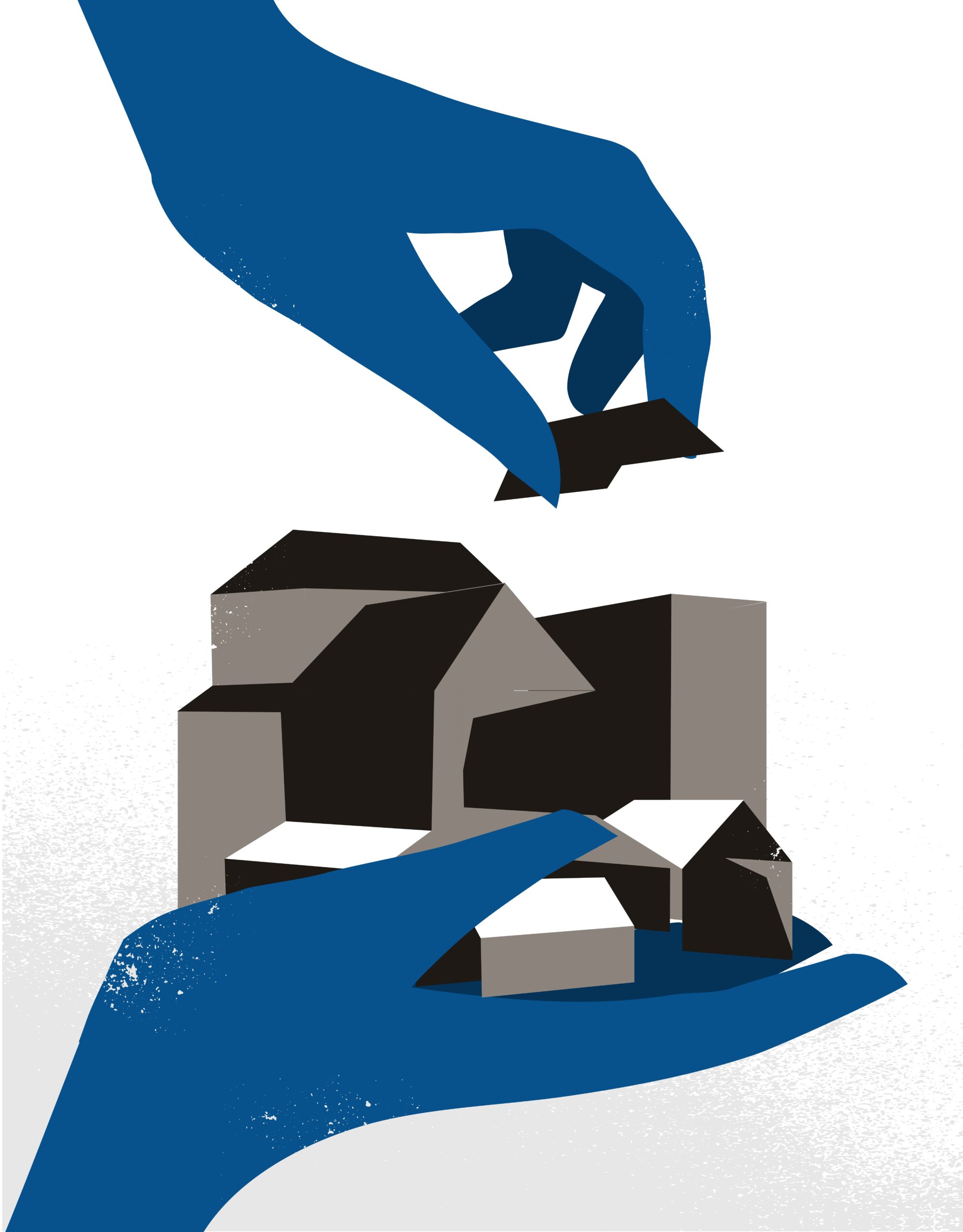In rural South Africa, the well-being of communities is deeply rooted in connections – family bonds, village relations and links to urban areas. According to researcher Leslie Bank of the HSRC, these are not just threads but lifelines. “It’s the relationships between people – the mutuality, the connectedness between women – that allow resources to be distributed,” he says. During the COVID-19 lockdown, many of these ties were broken. Co-led by Bank, the Women Rise post-pandemic recovery and reconstruction project is using participatory research to reveal women’s experiences of COVID-19 in rural areas and to support their efforts to rebuild their lives and livelihoods. By Andrea Teagle

Heritage Day celebration in Kwelera, Eastern Cape, 24 September 2023Photo: Anelitha Tukela
When graduate Bonelwa Nogqaza set off for the village of Tsolo in the Eastern Cape in April 2023, her mission was deceptively simple: to live alongside women in the community and document their everyday lives. One of eight field researchers of the Women Rise project, Nogqaza wanted to find out how women in rural areas had been impacted by COVID-19 and how their communities were emerging from the impact. According to Prof. Leslie Bank, the Women Rise project leader, the project aimed, through a “people’s science” approach, to find out how the state could better handle shocks in future and how communities could be supported in their rebuilding efforts.
Tsolo is surrounded by flat fields of green, occasionally interrupted by the pointed hills for which the town is named. Simple houses give way to South African staples lining the main road: Ackermans, a Spar, a KFC. Street traders display their wares under bright umbrellas, and the occasional cow wanders by. On her arrival, Nogqaza was met warmly by her host family. “I think we clicked from the very get-go,” she says. But, despite the friendliness of the Tsolo residents, scratching beneath the surface took time.
During the COVID-19 pandemic, communities like Tsolo were struck particularly hard. Women’s experiences of the restrictions were difficult and personal; they used the term “ukuvula isango” (closing the gate) to describe their experience of exclusion. Nogqaza was both an outsider and a researcher. “I also come from a village,” she explains, “so I know how someone relates to you as an individual compared to how they relate to you as an educated person.” Recalling how residents clammed up when she began asking research questions, pen in hand, she realised she needed a different approach.
In a blog post – part of the project outcomes – she writes that she wanted to ‘hand over the stick’ – reverse the researcher-subject power dynamic to learn from these women’s knowledge and experience.
‘Handing over the stick’
To build trust, the young researcher decided to write individual letters to each woman, offering them the space to share their stories in confidence. The decision was also a nod to their history: during apartheid and colonial eras, migrant workers had sustained their relationships by writing back home. “That’s where I got the thick details of their lives: their stories, their challenges, their happy moments, their bad moments… They were journalling about their lives.”
She writes, ‘I have now … personally met many older women, not just because of the words contained in the letters we exchanged, but because of the meaning of hand-written letters in a landscape scarred by enforced separation and the history of migrant labour.’ This was the start of Nogqaza’s integration into the community.
Engaging communities
The anecdote serves as an example of how local communities can be engaged in research. In a book that preceded the study, Covid and Custom in Rural South Africa, Bank argues that engagement with local leaders was sorely absent in the state’s response to COVID-19.
During the peak of the pandemic, in mid-2020, state actors blamed traditional family gatherings and funerals for rising infection rates in rural areas. Rather than working with community leaders to agree on solutions, and to gain the buy-in of communities, the government clamped down on these events and enforced other preventative measures that conflicted with isiXhosa beliefs. For the residents of rural Eastern Cape, the government’s war against the coronavirus evolved into a collision with custom and culture, Bank argues, which undermined the effectiveness of preventative measures and left lasting scars on traditional ways of life.
The Women Rise project is taking the first steps to engage with communities to understand what could have been done better and to find women-managed solutions to public health and livelihood challenges. In this way, they hope to increase community resilience to future external shocks.
Intersecting challenges
The stories that Nogqaza and the other field researchers collected bear testament to the devastation wreaked by COVID-19 in the rural Eastern Cape, the epicentre of the epidemic. Here, Bank and colleagues write, women bore a heavy load ‘as custodians of family health, as care workers, mothers, anchors for rural livelihoods and community organisers’.
Nogqaza encountered on a personal level the struggles individuals faced. She bore witness to grief for lost family members, and child-headed households “where they’d be depending on a child support grant. There was no income”. Drug use increased as many young people were left without employment.
“COVID-19 disrupted [the Tsolo residents’] lives. People lost jobs. Breadwinners lost the status of being breadwinners,” she says. Many women found themselves in vulnerable situations because they had no way of supporting themselves financially. Some stayed in or entered abusive relationships “because they didn’t have food at home. They needed that man to provide for them”.
Nogqaza realised that many of the issues that women in rural areas face are connected. For instance, she says, “If maybe I learned that people had encountered GBV [gender-based violence], it would actually link to issues of unemployment, issues of poverty and issues of mental health.”
In her conversations, Nogqaza found that people often used the isiXhosa term “mgowo” (going through a lot) to refer to mental health issues such as depression or anxiety. “It’s not that they’re not aware that they’re going through these things,” she says. “It’s that the language that academics use and the terminologies that people on the ground use are totally different.”
Bringers of hope
According to Bank, the project has shown that, if women were hit disproportionately hard by COVID-19, they were also instrumental in rebuilding efforts. People are investing their time and money mainly into repairing social connections, he says. “What a lot of the work speaks to is this reconnecting process and this real desire to bring families back together.”
In the coastal community of Cwebe, 150km south of Tsolo, Women Rise researcher Zipho Xego observed how, on one occasion, a swarm of bees visited the Dwesa-Cwebewasa homestead. In isiXhosa (Bomvana) culture, Xego writes with Bank, the movements of bees is believed to convey spiritual messages. Sure enough, shortly after the arrival of the bees, one of the daughters of the home received a nursing job offer.
The women of the homestead organised a celebratory ritual to gather people and to thank the ancestors for the good fortune. Such rituals serve as reminders to the community ‘that there was still hope amid poverty, hunger and unemployment’. Xego and Bank reflect that, as custodians of their homes and homesteads, women are often the ones who operationalise hope.
Pointing to the lockdown travel restrictions that prevented people in urban areas from returning to their rural homes, Bank says, “Many rural communities want to revitalise … these cultures of migration and the ritual processes that sustain them, and that, in turn, sustain these rural communities in various ways, materially as well as spiritually and culturally.”

Cultural gathering, Cwebe, Eastern Cape. Photo: Zipho Xego
Re-opening the gate
In Tsolo, Nogqaza observed that many women are realising the value of diverse income streams in the wake of COVID-19. Some are growing small vegetable gardens or finding other business opportunities. “Women who previously relied on their husbands are inspired to start their own small businesses,” she says. “Others don’t have the finances or the skills to do so.”
Nogqaza and the other graduate researchers returned home in August 2023. The team is now in the action phase of the project, exploring policy and infrastructure that can “re-open the gate” (ukuvula isango), by tackling issues at the household and community level.
According to Bank, observations from the research phase have revealed a disconnect between the market-orientated solutions that the state proposes and people’s livelihood practices. “These practices depend as much on people’s relationships to each other as they do on whatever opportunity there might be in the market.”
Much of the data that is used to define issues such as hunger and gender-based violence comes from clinics, police stations, Statistics South Africa and so on, says Bank. By situating these issues in the lives of individuals, the Women Rise project aims to reveal connections and intersections that are not always evident. “Over the next few months, we will be doing action workshops on key issues in 10 rural communities and we will also be hosting public dialogues and debates on issues like gender-based violence, hunger, mental health, reproductive health, addiction and livelihoods.”
Note:
The Women Rise project, funded by the International Development Research Centre, involves a partnership between the Human Sciences Research Council, McGill University in Canada, Walter Sisulu University in South Africa and the Eastern Cape Socio-economic Consultative Council (ECSECC). Dr Adam Cooper is the study’s principal investigator at the HSRC, while Professor Leslie Bank, a retired member of the HSRC staff, is the project leader, along with co-principal investigators, Kathleen Rice and Ian Assam from the Eastern Cape Socio Economic Consultative Council. The team will present the project findings at the World Anthropological Union Congress in November 2024.
Researcher contacts
Dr Adam Cooper, chief research specialist, and Prof. Leslie Bank, consultant, in the HSRC’s Equitable Education and Economies division


